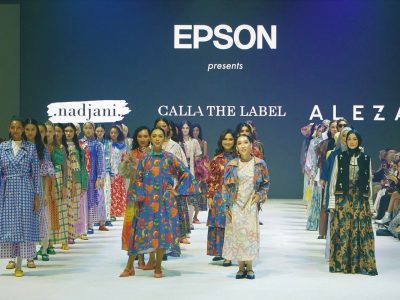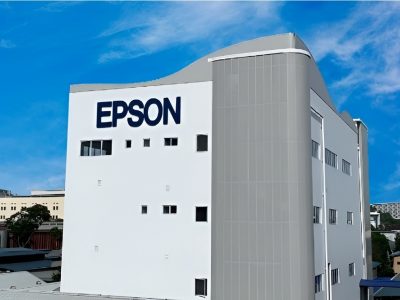The Latest Digital Frontier: Fashion Production

Take a look at the collection of clothes in your closet. Among the items you may not have worn for over a year, you are likely to find numerous examples of garments that were produced on-demand, on a short run, or customised just for you. These pieces were also likely purchased as you scrolled social media on your phone from the comfort of your living room. Given the overall convenience of shopping at home, it is no surprise that many online fashion boutiques purchase their own catalogue through social media or from specialty apparel websites.
While online shopping in Asia Pacific is not new, the pandemic dramatically accelerated the e-commerce trend. Studies suggest that consumers across the region do not intend to fully reverse their behaviour in the future. Three quarters of Singaporean consumers planned to keep up their online shopping activity once the pandemic is over, according to Zalora. As consumer expectations drive this dizzying trend, small clothing retailers and producers are being pushed to implement more efficient processes than the standard industry model that was created around seasonal, high-volume production. The streamlined business model of e-commerce shops also contributes to higher profit margins for retailers. As Shopify notes, “lower digital barriers to entry for all clothing merchants offer the opportunity to market, sell, and fulfill orders globally and automatically.”
Digital printing helping to fulfil orders on-demand
To meet this demand, digital, direct-to-garment (DTG) printing is enabling small clothing retailers to quickly produce custom cotton pieces such as t-shirts and tote bags precisely and reliably at any scale. Small businesses in other industries are also using custom-printed merchandise as a marketing tool to build brand recognition and loyalty among customers or fans. The UltraChrome Direct-To-Garment ink technology featured in the SureColor F-series printers achieve accurate and bright colours of the highest quality without the need for a professional.
The digital dye sublimation printing process produces professional-quality prints on soft and rigid materials, as well as polyester-based fabrics. Epson’s latest SureColor F130 Dye-Sublimation Printer easily produces high-quality results without taking up significant workshop space. Additionally, water-based pigments are certified safe for adults as well as small children, which widens the product options for customers to choose from. This makes it easy for small businesses and start-up clothing companies can print their own merch without a trip to a print shop.
Businesses that are utilising digital textile printing processes in retail operations have a few characteristics in common, according to FESPA. Since sales are completed before production begins, these retailers keep minimal finished stock. Orders are also completed faster than traditional printing methods and produced more sustainably. This simpler model generates higher margins than traditional retail manufacturing for sale in stores, and merchants can offer a wider variety of product options. As more retailers catch on to the benefits of this model, the digital textile market will continue its rapid growth.
In many ways, the surge in online shopping and product personalisation capabilities with digital textile printing has made fashion more accessible. This has opened the door to creative, business minded e-commerce brands and small businesses that may not have had the capital to produce a collection before. With the convenience of online shopping moving closer to our front doors, small retailers and business owners can now meet consumer needs efficiently and more economically than ever before.
Posts You May Like
Get Social With Us



